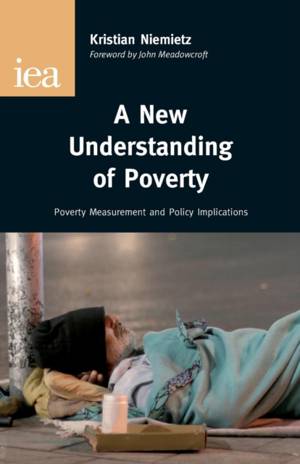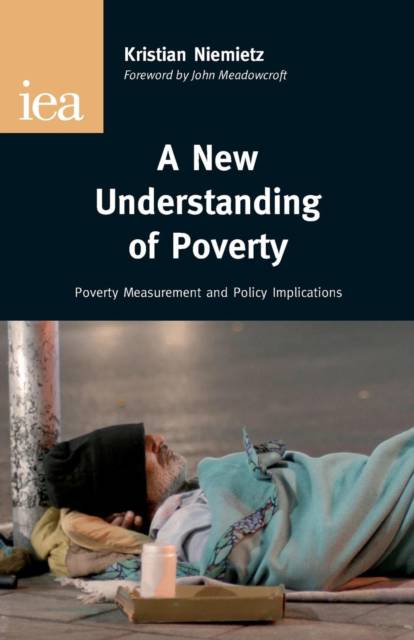
- Afhalen na 1 uur in een winkel met voorraad
- Gratis thuislevering in België vanaf € 30
- Ruim aanbod met 7 miljoen producten
- Afhalen na 1 uur in een winkel met voorraad
- Gratis thuislevering in België vanaf € 30
- Ruim aanbod met 7 miljoen producten
Zoeken
A New Understanding of Poverty
Poverty Measurement & Policy Implications
Kristian Niemietz, John Meadowcroft
€ 17,45
+ 34 punten
Omschrijving
This ground-breaking study on the measurement of poverty shows how policy in this field has taken a wrong turn with disastrous results. In recent years, poverty has generally been understood in 'relative' terms. That is, people are regarded as poor if they earn less than some benchmark relative to average earnings. One perverse result of such relative poverty measures amongst many is that poverty often declines in a serious recession when the better paid lose their jobs. The policy response of income transfers, which are used to address the perceived problem of relative poverty, has often led to serious problems that actually reduce long-term opportunities for poorer people. The author proposes an entirely new way of measuring poverty. If this measure were applied, public policy would orientate itself towards creating the conditions that allowed the poor to become better off. Such a strategy would focus not only on ensuring economic growth and more labour market participation, but also on supply-side reforms that would reduce the cost of living for the poor. This monograph is essential reading for all involved in the poverty debate. Its approach to the measurement of poverty and its policy conclusion are original and soundly based on evidence.
Specificaties
Betrokkenen
- Auteur(s):
- Uitgeverij:
Inhoud
- Aantal bladzijden:
- 252
- Taal:
- Engels
- Reeks:
- Reeksnummer:
- nr. 65
Eigenschappen
- Productcode (EAN):
- 9780255366380
- Verschijningsdatum:
- 1/01/2011
- Uitvoering:
- Paperback
- Formaat:
- Trade paperback (VS)
- Afmetingen:
- 127 mm x 196 mm
- Gewicht:
- 272 g

Alleen bij Standaard Boekhandel
+ 34 punten op je klantenkaart van Standaard Boekhandel
Beoordelingen
We publiceren alleen reviews die voldoen aan de voorwaarden voor reviews. Bekijk onze voorwaarden voor reviews.











